Copperhead Snake Adaptations
It is often found in habitats next to water such as marshes lagoons swamps lakes creeks streams and rivers. This is a structural adaptation.

Copperhead Facts Diet Habitat Pictures On Animalia Bio
The pit vipers include copperhead cottonmouth pigmy rattlesnake eastern diamondback rattlesnake and timber rattlesnake.
Copperhead snake adaptations. 6- Just shove it out with the help of a broom. This is an evolutionary adaptation that allows snakes to better protect their young. When injected their venom will cause severe damage to the local tissue and can pave the road for.
The copperhead can be determined as having a triangular head. You are likely to spot a copperhead baby closer to habitats where they are found naturally. 5- Remove leftovers and other pests.
The Copperhead Snake Agkistrodon contortrix is shorter than both the Coral snake and the Cottonmouth snake. Special anatomical physiological or behavioral adaptations. 3- Go for a snake trap.
Copperheads are venomous snakes so the have venom that. The copperhead has three -eighths of an inch long fang. Many baby copperheads have a sulfur tail and grow to be 24 to 36 feet long.
Where are they found. What Does A Copperhead Snakes Belly Look Like. Its physical adaptations.
Texas Colorado Mexico Oklahoma Kansas Missouri Arkansas and many other states Final Destination Physical traits 1The pattern on its body 2its teeth behavioral traits Copperhead Snake Adaptation 1hunting 2eating 3finding a home. Some copperheads have light gray scales. Copperheads give birth in the fall from late August to early October.
1- Maintain the yard. 2- Get a snake repellent. Copperhead venom is considered mild compared to that of other venomous snakes but medical treatment should still.
Copperhead snakes are common in large parts of the United States. - it has a long body to sliver throughup trees and move around. Copperhead snakes do grow inside eggs but these eggs remain inside the mother until they hatch.
Copperheads have many different adaptations to help them survive. Diet and feeding behavior Eastern copperhead Agkistrodon contortrix swallowing a Cicada. Copperheads bites are rarely the cause of snake bite fatalities.
4- Set up a barrier or a snake fence. Pit vipers get their name from having a heat-sensing pit located between their eyes and their nostrils which. Some subspecies have adapted to life in marshy regions living off the ample food sources found along the waterways.
Northern Copperhead Agkistrodon contortrix is a venomous pit viper found in Eastern North America. This is called ovoviviparity. Copperhead snake this animal has several adaptations they have camouflage so they can hide in the woods.
Copperhead snakes are responsible for the most venomous snake bites in the USA. This species is capable of vibrating its tail in excess of 40 times per second faster than almost any other non-rattlesnake snake species. This species is able to live in areas heavily disturbed even those.
Lowland Copperhead - inhabits grassland heathland woodlands and open scrub. The snake has vertically elliptic pupils and heat sensitive pits between the eye and nostril. The Copperhead Snake is the most often encountered snake in Eastern parts of the United States such as Alabama Missouri and Arkansas.
The Copperhead snake is so known for its reddish-brown or copper coloured head however there are five. 7- Simply call a pest control company to render help. Like most other New World vipers copperheads exhibit defensive tail vibration behavior when closely approached.
When disturbed the copperhead will vibrate its tail rapidly like a rattlesnake. Where adult snakes can be found baby copperhead snakes are almost guaranteed to be around the same parts at their most active time of year. Copperheads are pit vipers with an opening on each side of the head and in daylight eyes with catlike vertical pupils all our nonvenomous snakes have round pupils.
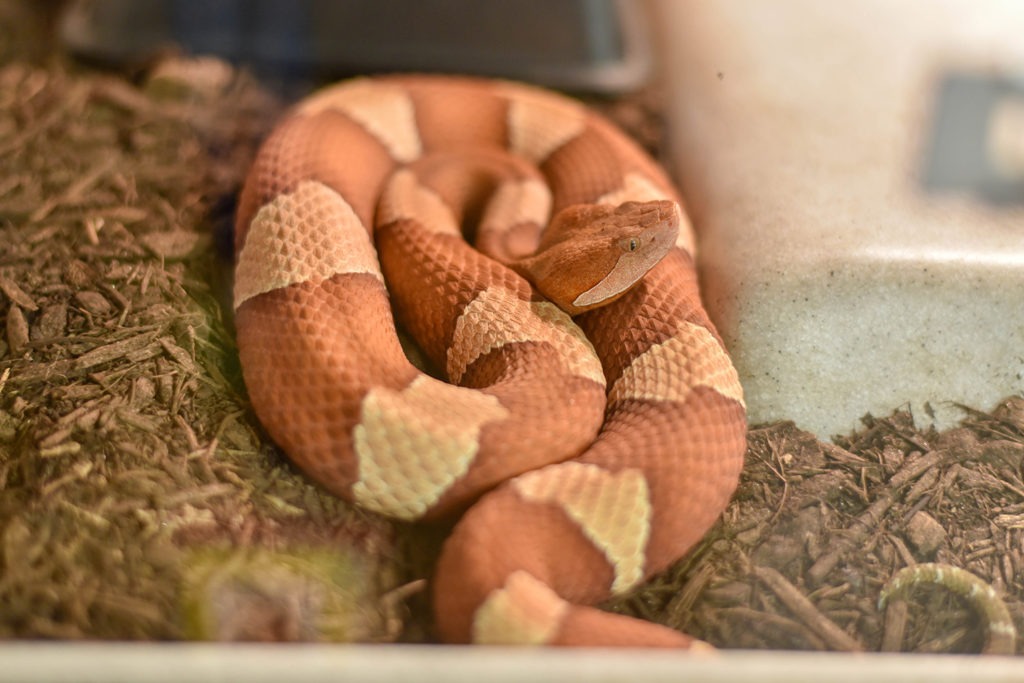
Northern Copperhead The Maryland Zoo

Snakes Alive Copperhead Other Snake Encounters More Likely As Days Shorten Weather Cools Local News Tulsaworld Com

Species Profile Copperhead Agkistrodon Contortrix Srel Herpetology

Species Profile Copperhead Agkistrodon Contortrix Srel Herpetology
Copperhead Snake Information Facts
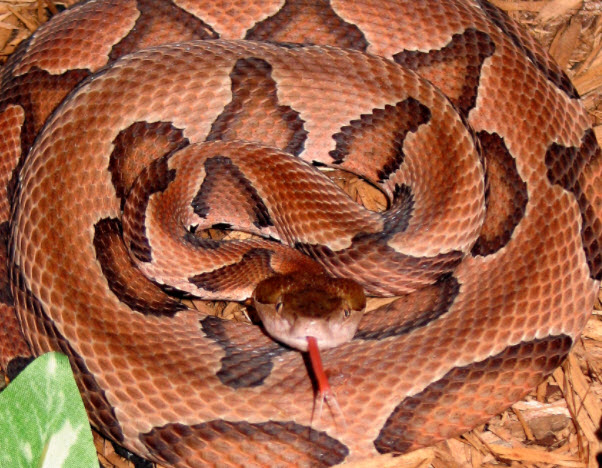
Nuisance Snakes Triangle Wildlife Removal 919 661 0722 Raleigh Nc
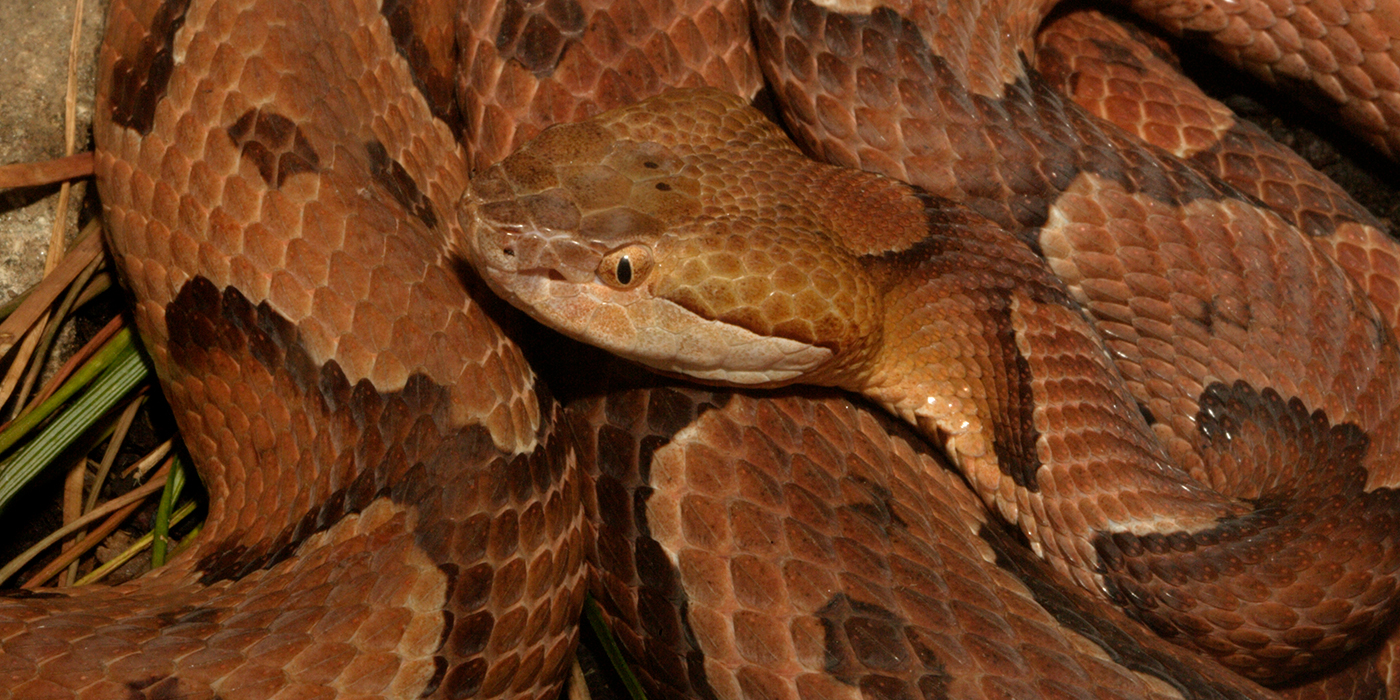
Northern Copperhead Smithsonian S National Zoo
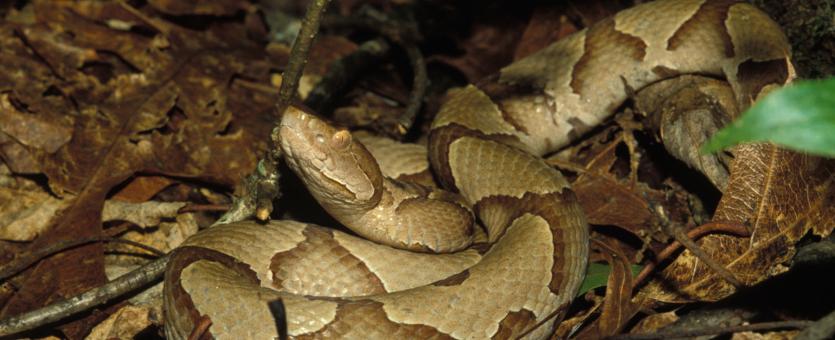
Eastern Copperhead Missouri Department Of Conservation

Copperhead Chesapeake Bay Program
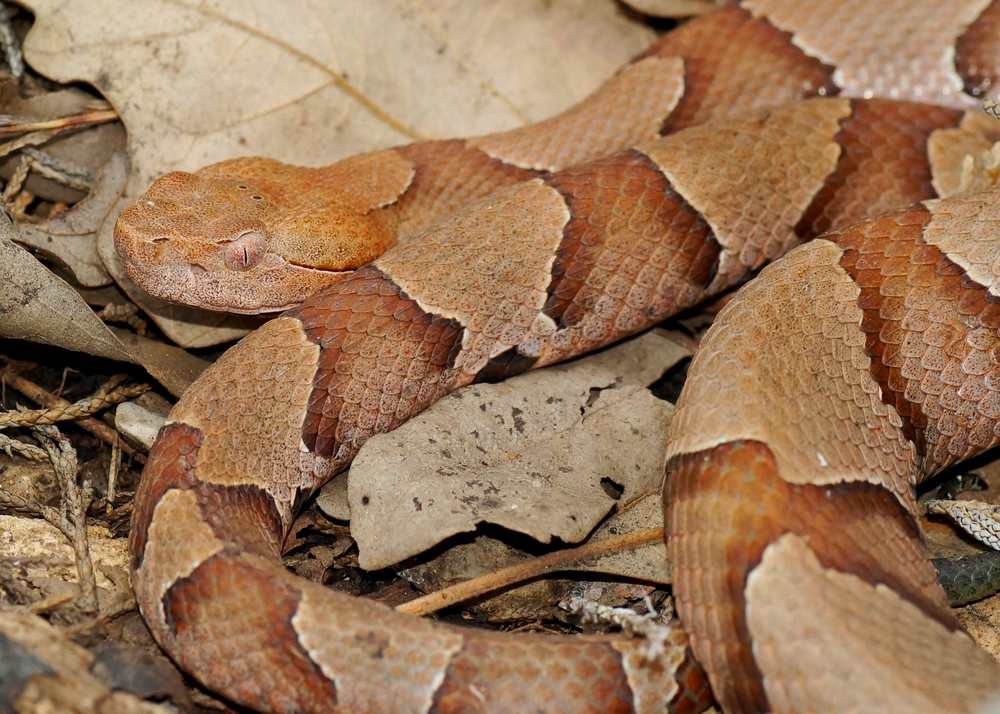
Copperhead Snakes Facts Bites Babies Live Science

Copperhead Chesapeake Bay Program

How To Get Rid Of Copperhead Snakes A Simple Guide Pest Strategies

Species Profile Copperhead Agkistrodon Contortrix Srel Herpetology
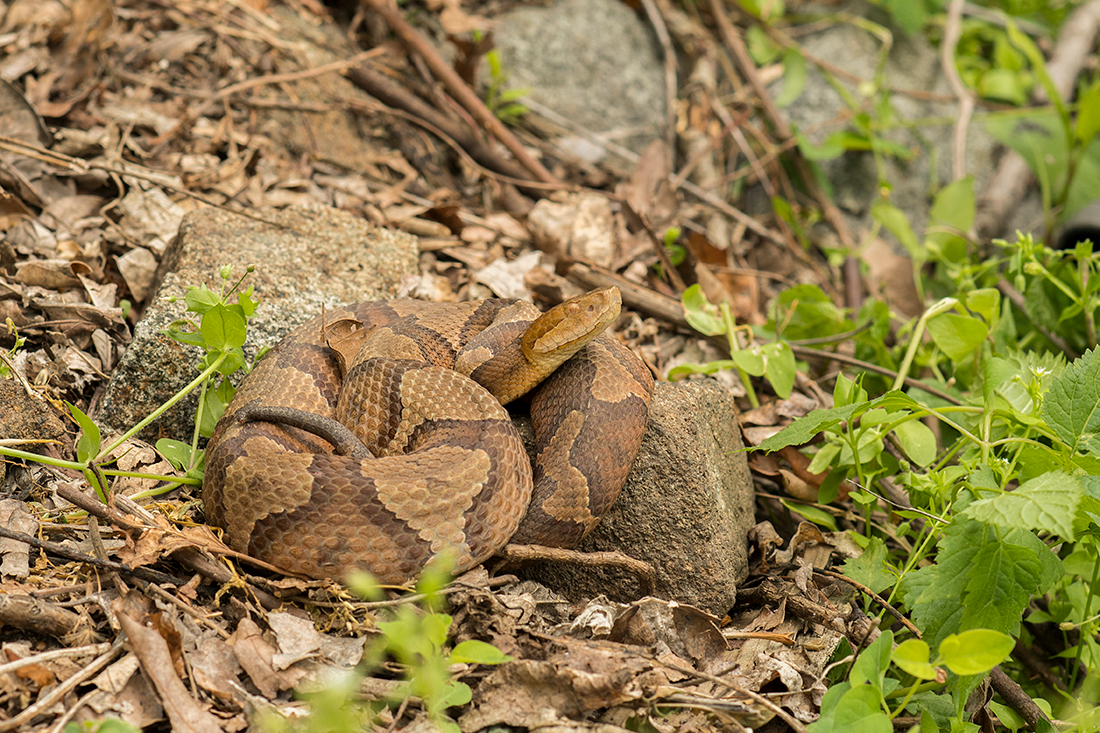
Fs1320 Northern Copperheads In New Jersey Rutgers Njaes
Wildlife Field Guide For New Jersey S Endangered And Threatened Species Conserve Wildlife Foundation Of New Jersey
Copperhead Snake Information Facts






Posting Komentar untuk "Copperhead Snake Adaptations"